- Home
- Books
- Categories
- Non Fiction
- Mind , Body & Spirit
- On Being Unreasonable: Why Being Bad Can Be a Force for Good
On Being Unreasonable: Why Being Bad Can Be a Force for Good
By: Kirsty Sedgman
-
Rs 2,245.50
- Rs 2,495.00
- 10%
You save Rs 249.50.
Due to constant currency fluctuation, prices are subject to change with or without notice.
The trouble is, what's 'reasonable' to one person is outrageous to another. Is it okay to let children play in the garden while others are working from home? To do your makeup on a train, or recline your seat on an aeroplane? What's the right way to breastfeed? To protect your neighbourhood? To protest against injustice and oppression? In a world where we all think we're being reasonable, how can we figure out what's right?
Looking back through history and around the world, Kirsty Sedgman set out to discover how unfairness and discrimination got baked into our social norms, dividing us along lines of gender, class, disability, sexuality, race... Instead of measuring human behaviour against outdated standards of rules and reason, On Being Unreasonable argues that sometimes we need to act unreasonably to bring about positive change.
The trouble is, what's 'reasonable' to one person is outrageous to another. Is it okay to let children play in the garden while others are working from home? To do your makeup on a train, or recline your seat on an aeroplane? What's the right way to breastfeed? To protect your neighbourhood? To protest against injustice and oppression? In a world where we all think we're being reasonable, how can we figure out what's right?
Looking back through history and around the world, Kirsty Sedgman set out to discover how unfairness and discrimination got baked into our social norms, dividing us along lines of gender, class, disability, sexuality, race... Instead of measuring human behaviour against outdated standards of rules and reason, On Being Unreasonable argues that sometimes we need to act unreasonably to bring about positive change.
On Being Unreasonable: Why Being Bad Can Be a Force for Good
By: Kirsty Sedgman
Rs 2,245.50 Rs 2,495.00 Ex Tax :Rs 2,245.50
Zubin Mehta: A Musical Journey (An Authorized Biography)
By: VOID - Bakhtiar K. Dadabhoy
Rs 892.50 Rs 1,050.00 Ex Tax :Rs 892.50
Becoming Supernatural - How Common People Are Doing the Uncommon
By: Joe Dispenza
Rs 4,675.50 Rs 5,195.00 Ex Tax :Rs 4,675.50
The Trauma and Adversity Workbook for Teens
By: Breanna Chambers
Rs 3,595.50 Rs 3,995.00 Ex Tax :Rs 3,595.50
The Origins of Political Order From Prehuman Times to the French RevolutioN
By: Francis Fukuyama
Rs 4,045.50 Rs 4,495.00 Ex Tax :Rs 4,045.50
Manning Up: How the Rise of Women Has Turned Men into Boys
By: Kay Hymowitz
Rs 845.75 Rs 995.00 Ex Tax :Rs 845.75
The Obama Syndrome: Surrender At Home War Abroad
By: Tariq Ali
Rs 1,100.75 Rs 1,295.00 Ex Tax :Rs 1,100.75
The Quest For Meaning: Developing A Philosophy Of Pluralism
By: Tariq Ramadan
Rs 1,185.75 Rs 1,395.00 Ex Tax :Rs 1,185.75
Becoming Supernatural - How Common People Are Doing the Uncommon
By: Joe Dispenza
Rs 4,675.50 Rs 5,195.00 Ex Tax :Rs 4,675.50
The Trauma and Adversity Workbook for Teens
By: Breanna Chambers
Rs 3,595.50 Rs 3,995.00 Ex Tax :Rs 3,595.50
Sleep in Mind - The New Tools of Rest & Recovery
By: Natalie Pennicotte-Collier
Rs 3,865.50 Rs 4,295.00 Ex Tax :Rs 3,865.50
The Complete Book of Chalk Lettering - Create and Develop Your Own Style
By: Valerie McKeehan
Rs 2,397.50 Rs 4,795.00 Ex Tax :Rs 2,397.50
Living with Lexington - My World. My Dreams, My Thoughts
By: Kristina Lindhe
Rs 5,775.75 Rs 6,795.00 Ex Tax :Rs 5,775.75
Hiroshige II The Seven Mile Beach in Sagami Province Foiled Journal Flame Tree Notebooks
By: flame tree studio
Rs 2,995.00 Ex Tax :Rs 2,995.00
A History of the World in 21 Women - A Personal Selection
By: Jenni Murray
Rs 2,245.50 Rs 2,495.00 Ex Tax :Rs 2,245.50
Kitchens, or Sink: How to Build a FTSE 250 Company from Nothing
By: Matthew Ingle
Rs 2,375.75 Rs 2,795.00 Ex Tax :Rs 2,375.75
A Room Full of Bones: The Dr Ruth Galloway Mysteries 4
By: Elly Griffiths
Rs 2,120.75 Rs 2,495.00 Ex Tax :Rs 2,120.75
Eveolution The 8 Truths of Marketing to Women
By: Faith Popcorn
Rs 552.50 Rs 650.00 Ex Tax :Rs 552.50
Not That Duke - A Sensual, Witty Enemies-To-lovers Regency Romance
By: Eloisa James
Rs 2,155.50 Rs 2,395.00 Ex Tax :Rs 2,155.50
Too Late to Awaken - What Lies Ahead When There Is No Future?
By: Slavoj Zizek
Rs 4,225.50 Rs 4,695.00 Ex Tax :Rs 4,225.50
A Year of Last Things - From the Booker Prize-Winning Author of the English Patient
By: Michael Ondaatje
Rs 3,145.50 Rs 3,495.00 Ex Tax :Rs 3,145.50
Indestructibles Sesame Street Time for Bed
By: Amy Pixton
Rs 1,525.50 Rs 1,695.00 Ex Tax :Rs 1,525.50
The Second Mountain - The Quest for a Moral Life
By: David Brooks
Rs 2,515.50 Rs 2,795.00 Ex Tax :Rs 2,515.50
Where the Children Take Us - How One Family Achieved the Unimaginable
By: Zain E. Asher
Rs 1,780.75 Rs 2,095.00 Ex Tax :Rs 1,780.75
Torture Team - Uncovering War Crimes in the Land of the Free
By: N/A
Rs 590.75 Rs 695.00 Ex Tax :Rs 590.75
Afghanistan From Mullah Omar to Ashraf Ghani (In Urdu Language) (افغانستان ملا عمر سے اشرف غنی تک)
By: Syed Abrar Hussain
Rs 765.00 Rs 900.00 Ex Tax :Rs 765.00
Peter Peter Pumpkin Eater and Friends (Favourite Nursery Rhymes)
By: Wendy Straw
Rs 747.50 Rs 1,495.00 Ex Tax :Rs 747.50
The Fall of Númenor - And Other Tales from the Second Age of Middle-Earth
By: J. R. R. Tolkien
Rs 2,970.75 Rs 3,495.00 Ex Tax :Rs 2,970.75
Zubin Mehta: A Musical Journey (An Authorized Biography)
By: VOID - Bakhtiar K. Dadabhoy
Rs 892.50 Rs 1,050.00 Ex Tax :Rs 892.50
On Being Unreasonable: Why Being Bad Can Be a Force for Good
By: Kirsty Sedgman
Rs 2,245.50 Rs 2,495.00 Ex Tax :Rs 2,245.50
Becoming Supernatural - How Common People Are Doing the Uncommon
By: Joe Dispenza
Rs 4,675.50 Rs 5,195.00 Ex Tax :Rs 4,675.50
The Trauma and Adversity Workbook for Teens
By: Breanna Chambers
Rs 3,595.50 Rs 3,995.00 Ex Tax :Rs 3,595.50














-120x187.jpg?q6)






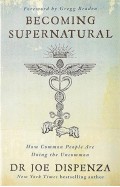

-120x187.jpg?q6)









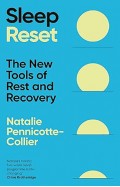











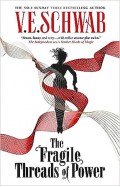





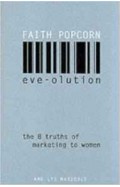

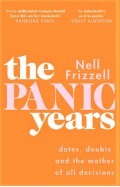
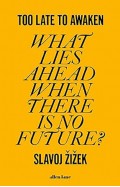






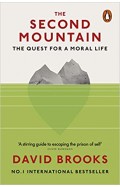
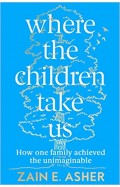
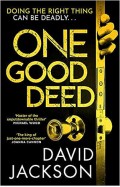



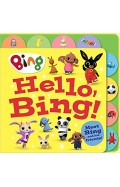



-120x187.jpg?q6)





